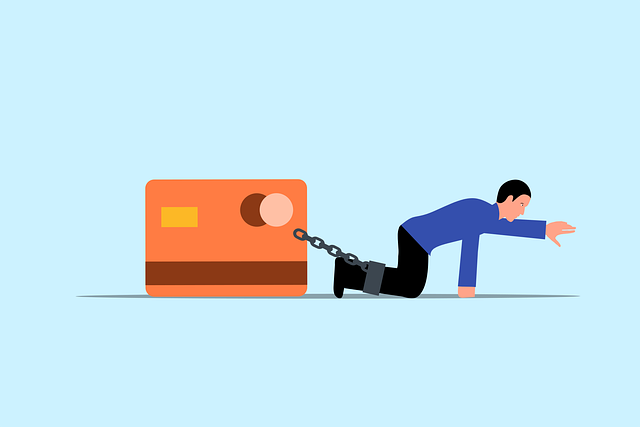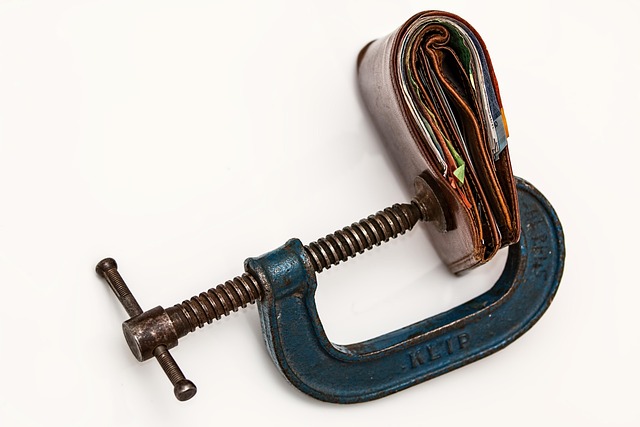Debt consolidation loans offer a strategic solution for managing multiple high-interest debts by combining them into one loan with potentially lower rates, simplifying repayment and freeing up funds. While effective, securing these loans requires strong credit history and consistent payments over an extended period. Responsible borrowing, budget creation, and disciplined spending are crucial for long-term financial stability and improving future loan for debt consolidation options.
Struggling with bad credit? Don’t despair. There are five debt loan options available to help you consolidate and manage your debts effectively. This article guides you through understanding debt consolidation loans, exploring various types, and weighing the pros and cons of each option. We also provide strategies for successful debt management after consolidation, empowering you to take control of your financial future. Discover how a loan for debt consolidation can be the solution you need.
- Understanding Debt Consolidation Loans
- Types of Debt Consolidation Loans Available
- Pros and Cons of Each Loan Option
- Strategies for Effective Debt Management After Consolidation
Understanding Debt Consolidation Loans

Debt consolidation loans are a popular choice for individuals looking to simplify their debt repayment process. This type of loan involves taking out a new loan with a lower interest rate than your existing debts, allowing you to combine multiple payments into one manageable monthly installment. The primary goal is to reduce your overall interest expenses and make it easier to stick to a repayment plan. By consolidating your debt, you essentially create a single, larger loan that pays off all your current debts. This streamlined approach can significantly improve cash flow and provide clarity in managing your finances.
A loan for debt consolidation offers several benefits, including a lower monthly payment, which can free up funds for other expenses or savings. It also simplifies the repayment process by eliminating the need to keep track of multiple lenders and due dates. However, it’s crucial to consider that while consolidation lowers interest rates, it may not reduce the overall amount you’ll pay back over time. Therefore, responsible borrowing and a solid plan for repayment are essential to making this option successful.
Types of Debt Consolidation Loans Available

When considering a loan for debt consolidation, several options are available to help individuals manage their multiple debts under one single, more manageable payment. The primary goal is to secure a lower interest rate than what you’re currently paying on your separate debts, thereby saving money in the long run.
The most common types of debt consolidation loans include secured personal loans, unsecured personal loans, balance transfer cards, and home equity loans or lines of credit. Secured loans require collateral, often a home or vehicle, while unsecured loans aren’t backed by any asset, making them easier to access but usually with higher interest rates. Balance transfer cards offer introductory zero-interest periods, allowing you to temporarily shift your debt at no cost. Home equity options tap into the equity built in your property, providing potentially lower rates but with the risk of losing your home if repayment fails.
Pros and Cons of Each Loan Option

When facing bad credit and a mountain of debts, it’s crucial to explore every financial tool available to navigate your options. Among the solutions, debt consolidation loans stand out as a strategic approach for managing and reducing debt. These loans offer a potential game-changer by combining multiple high-interest debts into a single loan with a potentially lower interest rate, making repayment more manageable. By simplifying repayment schedules, individuals can focus on paying off their debt faster, saving money in the process.
However, as with any financial decision, there are considerations. Debt consolidation loans may require a solid credit history and the ability to make consistent payments over an extended period. The process involves extensive research and careful planning to ensure the chosen loan fits individual financial needs. Furthermore, while debt consolidation can provide immediate relief, it doesn’t address the root cause of overspending or irresponsible borrowing habits; these factors must be addressed separately for long-term financial health.
Strategies for Effective Debt Management After Consolidation

After successfully securing a Debt Consolidation Loan, managing your debt effectively is crucial for financial stability and rebuilding your credit score. One strategy to consider is creating a detailed budget that allocates funds for loan repayment while ensuring essential expenses are covered. This involves tracking income and expenses, prioritizing payments, and setting realistic financial goals.
Regularly reviewing and adjusting your budget can help you stay on track. Make sure to allocate extra funds towards high-interest debts first and consistently make on-time payments. Building a disciplined approach to spending and saving will contribute to long-term financial health and demonstrate responsible money management to lenders, potentially improving future loan options.
If you’re struggling with multiple debts, a loan for debt consolidation could be a strategic move towards financial stability. By exploring options like personal loans, home equity loans, or credit card balance transfers, you can streamline your payments and potentially reduce interest rates. Each type of debt consolidation loan has its advantages and disadvantages, so understanding these options is key to making an informed decision. After consolidation, adopting effective debt management strategies will help you stay on track, avoid future financial pitfalls, and ultimately achieve long-term financial health.







